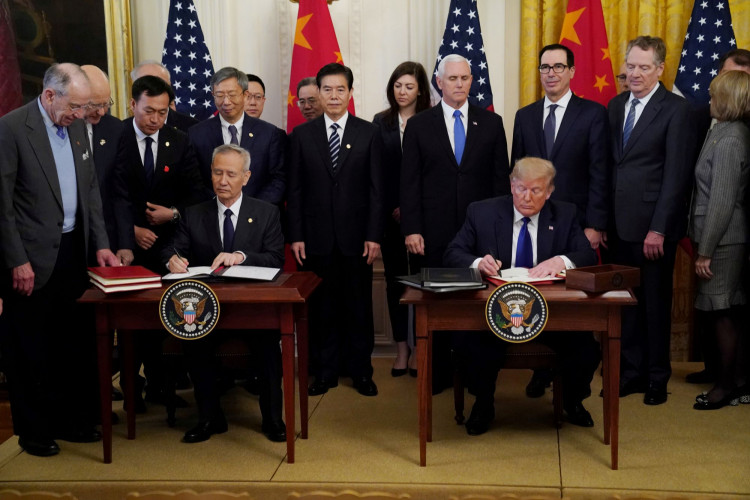The growing tensions between China and the United States might result in the latter withdrawing its mandate to minimize tariff rates on Chinese imports. US President Donald Trump relayed his commitment going back on his promise not to increase tariff rates against Chinese companies.
According to the president of the China-US Business Council Craig Allen, the call of Trump to withdraw the US's stand on mitigating the tariff rates might destabilize the China-US trade deal. He claimed that this would hinder China from meeting its commitments in the agreement.
Last Friday, Trump imposed new extra-territorial sanctions on China's tech giant Huawei. The Commerce Department announced that it would continue the blocking of Huawei in obtaining foreign-made semiconductors offered by US companies. The decision was said to disrupt the operations of US companies. It might lead China to source its semiconductors from makers in Japan, South Korea, and Taiwan.
According to the commerce secretary Wilbur Ross, there has been a technical loophole that allowed Huawei to use US technology by acquiring them from foreign producers. He claimed that the US government did not intend on offering that feature to the Chinese tech company.
Ross revealed that the US government has appropriated one billion USD to compel rural telecom towers from removing any Huawei equipment used for their services. An attorney with Banker Donelson John Scannapieco said that more companies manifested that the pandemic has crippled their businesses. They also claimed that the rising tensions between China and the US have urged them to diversify their supply chains.
He added that these companies have considered the possibilities that could hurt their business operations if they would not diversify their supply chains. He said that business operations have been hindered by the bureaucratic system of dealing with China. They have also shown their willingness to supply products and materials from Mexico and other Asian countries as well. Furthermore, these companies have reduced their presence by hedging their bets in the market to prevent political or pandemic issues from generating more losses.
The report also suggested that US companies have to rethink their relationships with Chinese companies deemed as national security risks. Pharmaceutical inputs and generic drugs like ibuprofen have been reliant on Chinese supply, including personal protective equipment for medical staff during the pandemic.
It was further discussed that dependency on foreign suppliers for US companies might be a threat to national security. A study by the Henry Jackson Society in London claimed that if significant suppliers such as China would emerge, the rivalry between the countries could destabilize the supply chain in the future.





